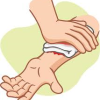
Common minor illnesses can catch us off-guard and it helps to be aware of effective home remedies that can provide quick relief.
Common Illnesses can come in the form of:
- Headaches
- A stubborn cough
- A bout of indigestion
Although, these home remedies are not a replacement for professional medical care, they can serve as a first response to common illnesses.
Here are some common illnesses and accessible home remedies for them:
COUGHS AND SORE THROAT
- Honey: Mix it in your tea or use a spoon to take it directly (Note: Do not give to children younger than 1).
- Tea: Specifically tea with licorice as an ingredient.
- Ginger: You can either eat it raw or ground and mix with tea.
HEADACHES
- Water: Headaches are sometimes caused by dehydration and drinking water can help relieve an headache.
- Cold Compress: Apply an icepack or any cold item to the affected part of your head.
- Caffeine: Beverages with caffeine, like coffee, can help relieve headaches sometimes.
- Sleep
INDIGESTION
- Ginger: Drink ginger tea or make your own ginger water. To make your own ginger water, Boil one or two pieces of ginger root in 4 cups of water. (Note: Do not take more than 3 grams of ginger per day).
- Baking Soda: Pour a half teaspoon of baking soda in a glass of warm water. Mix properly and drink.
TOOTHACHES
- Saltwater: Do a saltwater rinse while making sure to not swallow the water.
- Hydrogen Peroxide: Mix a small percentage of hydrogen peroxide in water. Gargle your mouth with it. be careful not to swallow it.
BURNS
- Honey: Apply a layer of honey to the affected area.
- Aloe Vera: Apply a layer of aloe vera gel taken directly from its plant to the affected area. If you’re buying the aloe vera from a store, make sure it contains a high percentage of aloe vera and no chemical additives.
Contact our emergency care service immediately at 09155556030, 09155556040 if any of the following happens:
- Your symptoms persist
- Your symptoms worsen
- You have an underlying health condition






